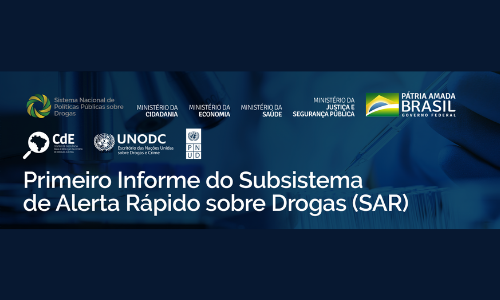
Brasilia, 27 January 2022 – The Early Warning System on Drugs (SAR), created by UNODC Brazil’s Center of Excellence, launched its first report in an online event on 31 January. The pioneering document provides an overview of the New Psychoactive Substances (NPS) detected within Brazil’s national territory.
New Psychoactive Substances
The New Psychoactive Substances (NPS), composed mostly of synthetic drugs, are substances that are not subject to international control, that is, they are not listed in the Single Convention on Narcotic Drugs (1961) or in the Convention on Psychoactive Substances (1971), but represent a risk to public health comparable to those already included in the conventions.
Although drugs of natural origin, such as marijuana and cocaine, have the highest prevalence of use among the world population, the use of synthetic substances has drawn the attention of world authorities in the last decade. As of August 2021, 1,049 NPSs had been identified and reported to the United Nations Office on Drugs and Crime (UNODC) by 133 countries.
About SAR
Implemented on an experimental basis, SAR is coordinated by the National Secretariat for Drug Policy and Asset Management of the Ministry of Justice and Public Safety (SENAD / MJSP). Through this system, police officers can be more alert to the emergence of new drugs, experts can confirm the chemical composition of seized substances more easily, and health professionals can receive guidance on symptoms and treatments for patients who have consumed these substances, for example.
In addition to acting in the identification, monitoring, analysis, and communication of new substances to law enforcement and health authorities, SAR will also contribute to the monitoring of trafficking activities in the marketing of these drugs.
The SAR report was prepared with the contribution of the Federal Police (PF), through its Synthetic Drugs Report, and the National Testing Center (NEE) of the Criminalistics Institute of the Superintendence of the Technical and Scientific Police of the State of São Paulo, together with the Center of Excellence for Drug Supply Reduction of Illicit Drugs (CdE) - a partnership among the SENAD/MJSP, the United Nations Development Program (UNDP), and UNODC.